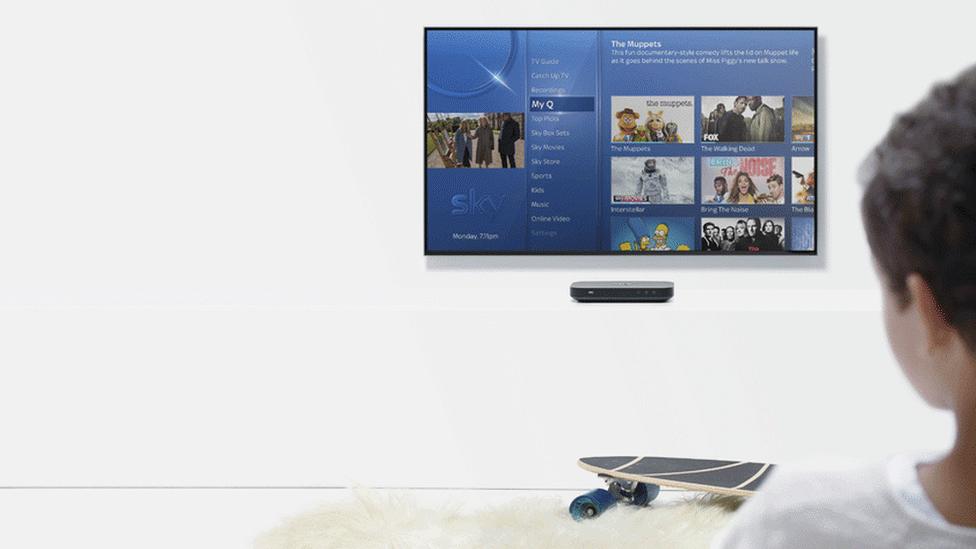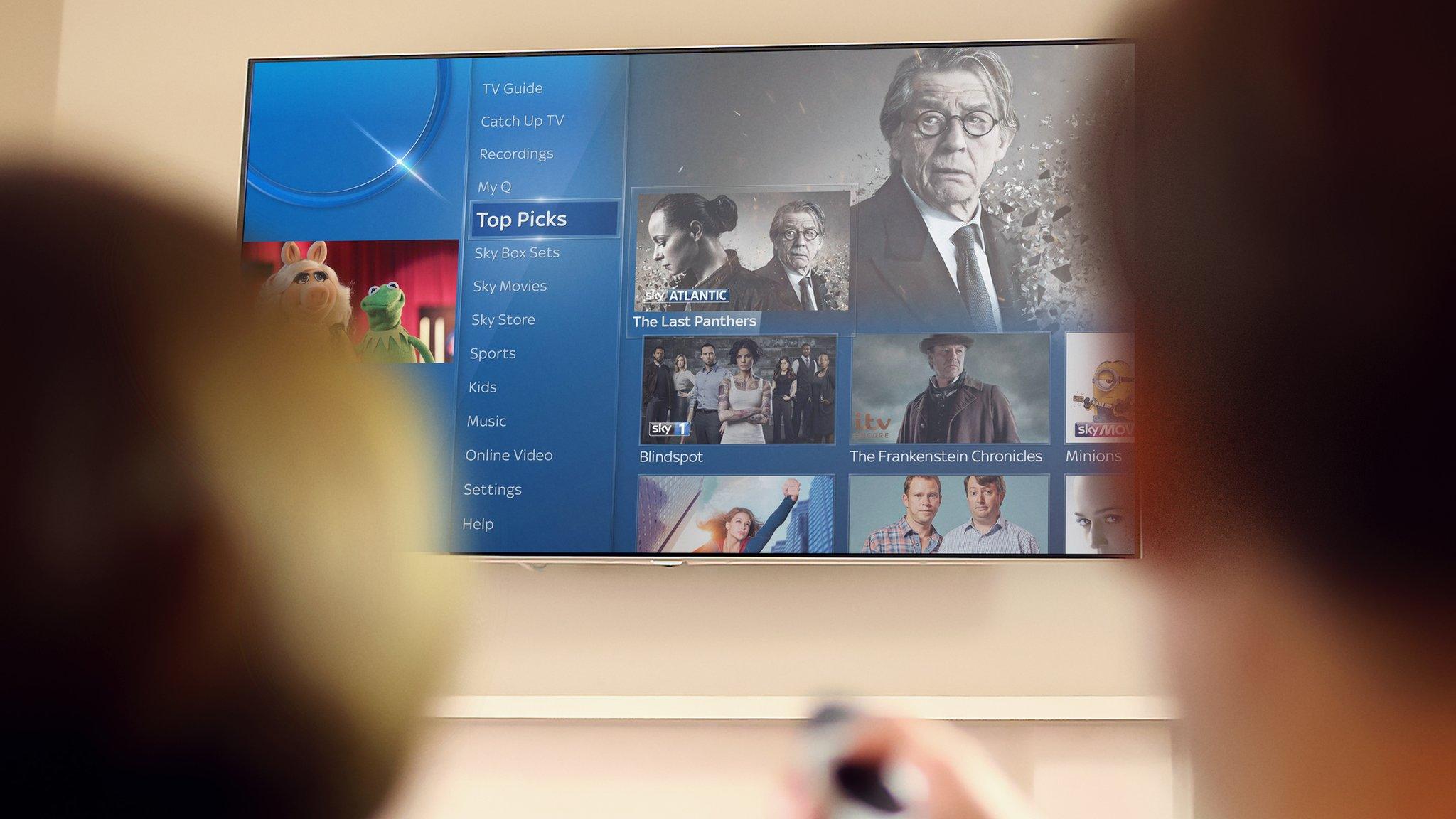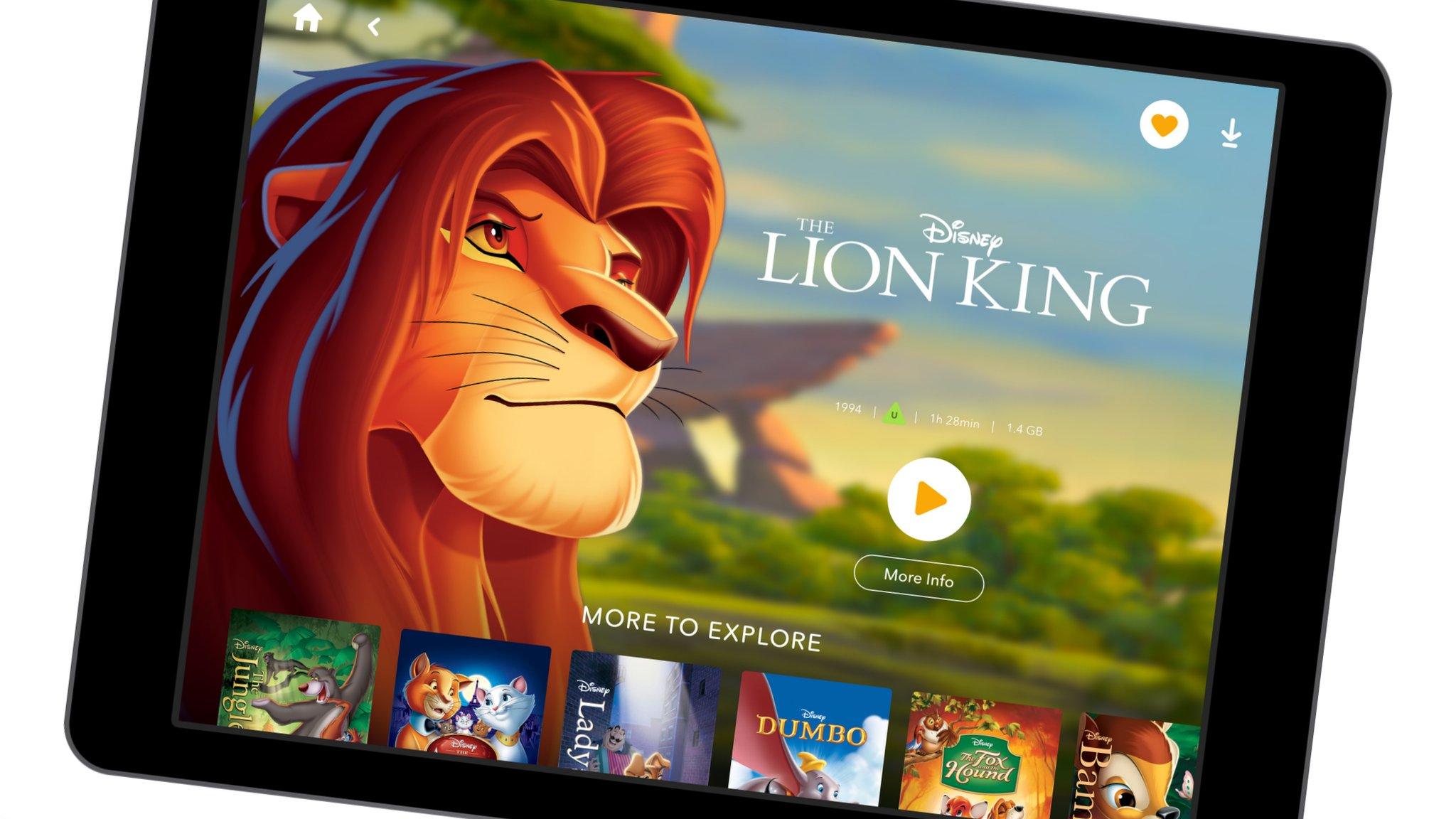What losing the red button means for the BBC
- Published

Lianne La Havas performed on the John Peel Stage at the 2015 Glastonbury Festival
The BBC is to explore closing its Red Button services as part of £150m of cuts that include a £35m reduction in sports rights spending. What does this mean for the corporation, and the viewer?
In the UK, 97% of people use the BBC and on average spend 18 hours a week with it in one form or another. The BBC also needs to cut around £700m and something will have to go.
Reconciling those two facts is never going to please everybody.
The announcement that in the first £150m of cuts a "phased exit" from red button services is now being considered makes sense if you think the BBC will increasingly be accessed online via the iPlayer.
The red button, for instance, took on what remains of the old teletext service, Ceefax, and offers extra channels for events such as Wimbledon, the Proms and Glastonbury. It looks a bit old fashioned.
The BBC is rolling out its Red Button+, which gives people a chance to see the iPlayer on the big screen and a number of other internet services. The direction of travel is assumed to be towards an online system.
The problem is sport, weather, headlines, alternative commentaries and repeats of popular programmes on the old red button services are still used by large numbers of people.
Nigel Walley of the TV consultancy, Decipher, says: "For a long time we worked with the BBC Red Button team and they were always shocked that the red button numbers around something like the Olympics and Wimbledon could dwarf iPlayer by a factor of 10 and the BBC press office would only trumpet the iPlayer numbers."
Viewers of today or viewers of tomorrow?
They are more likely to be older viewers, but older viewers watch more TV and are a growing part of the population. The BBC knows it has to chase the viewers of tomorrow and deliver programmes in the way they want to watch them, but it can't afford to alienate the people who are the heaviest users of its services.
The £35m of cuts to sports rights will also pose a problem for the part of the population whose viewing is dominated by sport. The loss of the Open Golf Championship is just the latest in a long line of events that have slipped through the BBC's fingers.
The sport that it has hung on to, for instance Formula One and the Olympics, now look a little less secure.
Given the audience is becoming more fragmented, there is a marked reluctance to cut the size and scope of the BBC. If the corporation wants to reach 97% of people in the years to come, it will have to respond to a rapidly changing technological environment.

The Sky Q service can be watched on multiple devices at the same time
It is worth noting that at the moment the BBC announced its latest cuts, Sky was revealing its new Sky Q, external box that allows viewers to record four television programmes simultaneously and watch content around the house.
Sky isn't alone. Amazon, Apple and Netflix are all in their own ways changing the landscape of TV with new services and technology.
YouTube has just announced a new kids service in the UK, while Disney is to launch a digital streaming service at the end of the month.
Future of television: big or tiny?
What is perhaps most interesting is how many of the new developments are aimed squarely at the big screen in the living room. For the people who said TV was dying, the future for the big screen is looking very perky.
Even amongst 16- to 34-year-olds - the so-called hard to reach "Millennials" - TV viewing in the UK remains around 10 times greater than time spent with YouTube. World Television Day on 21 November will also see a slew of new research on what's happening to the business.
A new report from the informitv, external consultancy will look at the reasons why we watch TV and how the vision of everyone sitting on their own in front of tiny screens may not be an entirely accurate picture of the future.
Things, then, are changing fast, and huge amounts of money are being spent on creating programmes, especially drama, and devising new technology in order to win the battle for living-room viewing.
The BBC is in the midst of a process in which the government is considering its "size and scope" and also imposing big cuts on its funding. That question of "size and scope" is very clearly set as a question about whether the BBC is too big.
The issue then is simple. The BBC has to invest and keep up with a rapidly changing technological landscape, provide the programmes and services that millions have grown to rely on over the years, and cut another £550 million next year while ensuring that 97% of the country's viewers still use its services.
- Published18 November 2015

- Published18 November 2015

- Published22 October 2015
